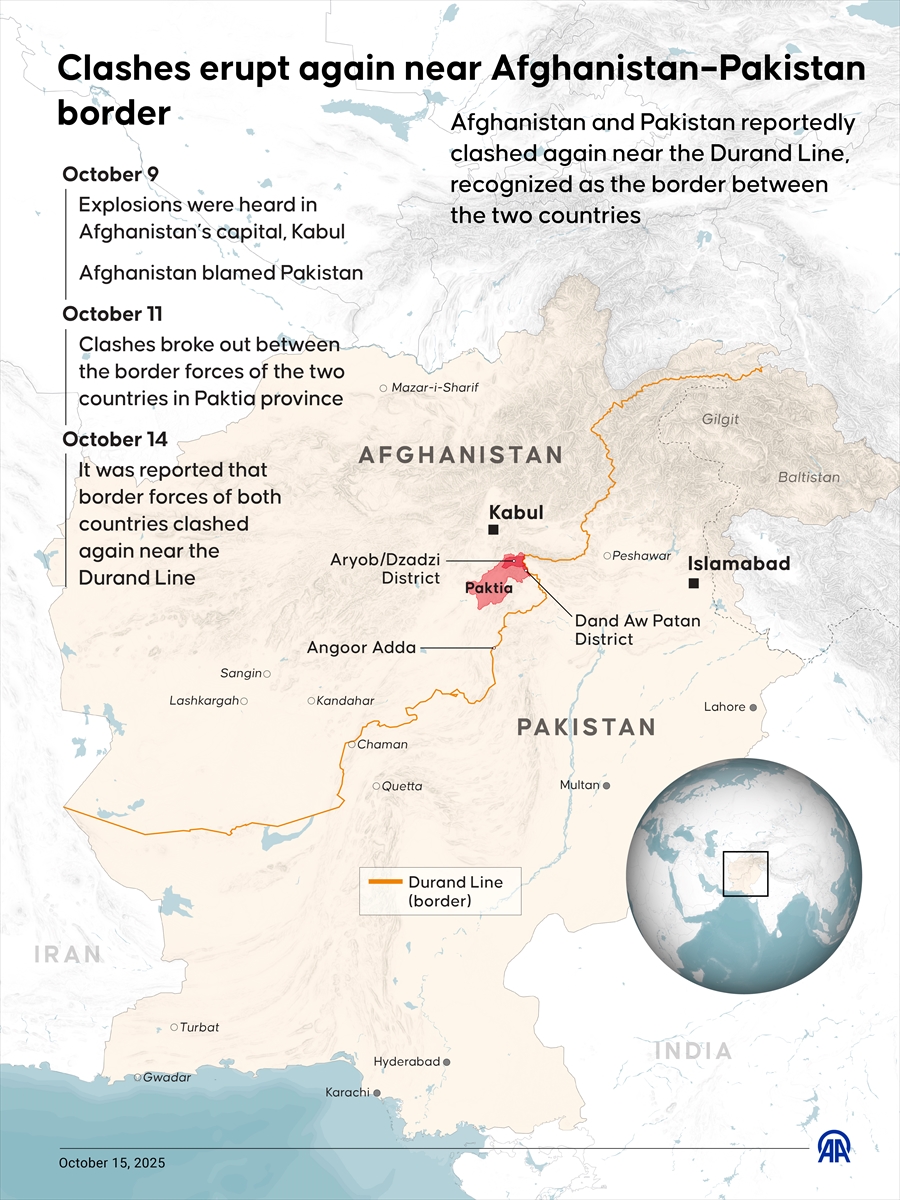
By Nadine Osman
London, (The Muslim News): Fresh border clashes erupted between Pakistani and Afghan forces on Tuesday, just days after a brief ceasefire and marking a sharp escalation in tensions. Fighting began in the Kurram sector, where, according to Pakistani security sources, Afghan Taliban fighters and members of the banned Tehreek-e-Taliban Pakistan, called Fitna al-Khawarij by the government, opened unprovoked fire on Pakistani positions.
The Pakistan Army swiftly responded, reportedly inflicting heavy losses and destroying several tank positions in quick succession. One strike was described as “highly professional and skilful” on a moving vehicle, with others hitting Shamshad Post, Nargasar Post in Afghanistan’s Khost province, and Turkmanzai Top. Night-vision devices captured footage of the ensuing flames.
The intensity of Pakistan’s counterattack reportedly caused Taliban fighters to abandon their posts. Security sources said a white flag was raised at one border position to signal surrender before the occupants fled. A senior commander of Fitna al-Khawarij was also reported killed in the engagement. Beyond the front line, the Pakistan Army struck a militant training camp in Naeem, located across the border, said to be used for training insurgents for operations in Kurram. The camp was reportedly destroyed in its entirety. Security officials affirmed that military operations against the Afghan Taliban and their affiliates are continuing with full force to eliminate hostile threats.
Narratives from both sides diverge. Afghanistan’s TOLOnews reported Afghan forces launched a counterattack after Pakistan fired late Tuesday, while a Pakistani security official accused Afghan forces of initiating the firing. The renewed clashes follow a confrontation on October 11–12.
The Inter-Services Public Relations (ISPR) called it an unprovoked Afghan Taliban attack supported by “Indian-sponsored elements of Fitna al-Khawarij.” According to ISPR, more than 200 Afghan Taliban fighters were killed, and 23 Pakistani soldiers killed. They also reported significant damage to Taliban infrastructure and called on the Taliban government to dismantle terrorist groups operating from Afghan soil.
The underlying tension stems from Islamabad’s repeated calls for Kabul to prevent terrorist groups from using its territory to launch attacks into Pakistan — an allegation Afghanistan consistently denies. Following the weekend clashes, Pakistan closed its border crossings with Afghanistan on Sunday.
The diplomatic situation remains fraught, with Defence Minister Khawaja Asif recently describing relations between the two countries as ‘hostile’, noting a current “stalemate” and the absence of active engagement. He warned that hostilities could resume “at any time” and remarked that if Afghanistan wished to negotiate while threatening Pakistan, “then they should act on their threats, and we’ll negotiate afterwards.”
Amid the lingering tensions, reports suggested that US President Donald Trump and China have offered to help de-escalate the situation.
[Photo: An infographic titled “Clashes erupt again near Afghanistan–Pakistan border” created in Istanbul, Turkiye on October 15, 2025. Afghanistan and Pakistan clashed again near the Durand Line, recognized as the border between the two countries. Photojournalist: Ufuk Celal Güzel/AA]